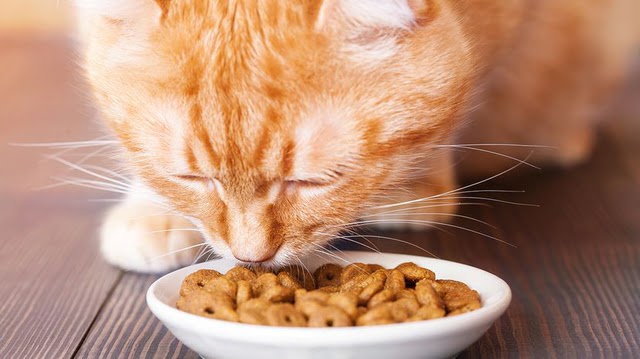Quck answer
Whisker fatigue is a condition that affects cats when their sensitive whiskers come into contact with the sides of their food bowls. This can cause discomfort and even pain, which may lead to cats avoiding their food or becoming grumpy during mealtime. To prevent whisker fatigue, cat owners can switch to shallow, wide food bowls or try using a flat plate instead. It is also important to keep the feeding area clean and free of debris. By addressing whisker fatigue, cat owners can help their feline friends enjoy mealtime and maintain their overall health and happiness.
Pets

Cat whiskers are highly sensitive, and this can cause trouble for cats. Murika/iStock/Thinkstock
Do you know what “whisker fatigue” is? It’s not a condition that affects bearded hipsters, but rather a problem that some cats face. While it might sound amusing to us humans who face more significant issues in life, “whisker fatigue” is a genuine feline ailment that can cause stress and discomfort.
We have long known that cats have exceptionally sensitive whiskers that enable them to navigate and explore their environment. These long hairs help them detect air movements and determine space size. However, they are also physically sensitive, and touching them against an object can cause stress or discomfort, particularly if the whiskers are not providing useful information to the cat. So, if you ever see your cat eating food off the floor instead of their bowl, they may be trying to avoid rubbing their whiskers against the sides of the bowl.
If your cat becomes aggressive or apprehensive around its food or water dish, try using a shallow bowl. This will allow your cat to eat without sticking its snout too deep and experiencing whisker stress. You could also use a plate, but many cat owners prefer specially-designed, whisker stress-free bowls that can cost up to $40.
Now That’s Interesting
Cats can develop acne on their chins, which is sometimes caused or aggravated by bacteria in plastic feeding dishes. Using non-plastic bowls that prevent whisker fatigue can help to improve this condition.
FAQ
1. What is whisker fatigue?
Whisker fatigue is a condition that occurs when a cat’s whiskers become overstimulated from repeatedly rubbing against the sides of a food bowl. This can cause discomfort and even pain, leading to grumpiness at mealtime and a reluctance to eat. Whisker fatigue is more common in cats with long, sensitive whiskers, but any cat can experience it.
2. What are the symptoms of whisker fatigue?
The symptoms of whisker fatigue can vary from cat to cat, but they often include pawing at the food bowl, reluctance to eat, and general grumpiness or irritability at mealtime. Some cats may also start eating from the middle of the bowl instead of the edges, or they may refuse to eat altogether. If you notice any of these symptoms in your cat, it’s important to consider whisker fatigue as a possible cause.
3. How can I prevent whisker fatigue?
The best way to prevent whisker fatigue is to provide your cat with a wide, shallow food bowl that won’t put pressure on their whiskers. Look for bowls that are at least as wide as your cat’s body and are made from materials that won’t cause irritation or allergic reactions. You can also try feeding your cat from a flat plate or even a paper towel to see if that helps. Additionally, make sure your cat has plenty of fresh water available at all times, as dehydration can exacerbate whisker fatigue symptoms.
4. Can whisker fatigue be treated?
Yes, whisker fatigue can be treated by changing the type of food bowl you use. Many pet stores now carry wide, shallow bowls specifically designed to prevent whisker fatigue, or you can use a flat plate or paper towel as mentioned before. You can also try feeding your cat smaller, more frequent meals throughout the day to reduce the amount of time their whiskers are in contact with the bowl. If your cat’s symptoms persist or worsen, it’s important to consult with your veterinarian to rule out any underlying medical conditions.
5. Is whisker fatigue a serious condition?
While whisker fatigue isn’t a life-threatening condition, it can cause discomfort and pain for your cat, leading to a decreased appetite and a lower quality of life. If left untreated, it could potentially lead to more serious health problems, such as dehydration or malnutrition. That’s why it’s important to be aware of the symptoms of whisker fatigue and take steps to prevent and treat it as necessary.





Leave a Reply